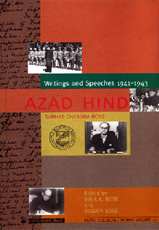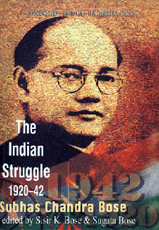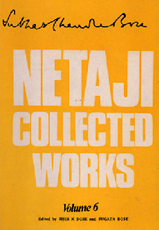
A distinguished cast of contributors explore the complex linkages between agricultural growth, agrarian social change, government policy and local level practice. Published by Sage in Delhi in 1999.
Sugata Bose considers such questions as why peasants borrowed, how credit intruded into peasants’ lives and transformed their world, how we may most usefully characterize the relationship between peasants and usurers, and how debtors perceive their creditors. Published by Oxford University Press in Delhi in 1994.
It is comprised of seventeen studies by historians, sociologists, economists and political scientists, which examine developments within the subcontinent vis-a-vis the global context of capitalism. Published by Oxford University Press in Delhi in 1990.

Cosmopolitan Thought Zones: South Asia and the Global Circulation of Ideas, joint editor with Kris Manjapra
This book examines forms of cosmopolitanism in the high period of South Asian anti-colonialism, 1890-1947.
Essays argue that anti-colonial action stemmed not only from a teleological rush to realize the form of nation-states, but from the speculative aspiration to critique and transcend notions of universalism and the ultimate good brought by British rule. Published by Palgrave Macmillan in the UK in 2010.
Netaji Subhas Chandra Bose, Chalo Delhi: Collected Works Vol. 12 1943-45, joint editor with Sisir K. Bose.
Volume 12 of Netaji’s Collected Works brings together all his speeches and writings as leader of the Azad Hind movement from June 1943 to August 1945. His stirring speeches in Singapore, Malaya, and Burma electrified massive audiences of civilians and soldiers, united Indians of all religions, and inspired them to join the march towards Delhi. The Proclamation of the Provisional Government of Azad Hind (Free India) in Singapore on 21 October 1943 blends erudition and passion. Netaji’s radio address to the ‘Father of Our Nation’ provides the most detailed justification of his course of action and seeks the Mahatma’s blessings in the ‘holy war’ raging around Imphal and Kohima. The ‘Tokyo thesis’ delivered to university faculty and students in November 1944 highlights the three supreme challenges for free India national defence, eradication of poverty, and education for all. His letters most published here for the first time reveal Netaji’s special solicitude for the young women and men who joined the Indian National Army.
This volume is indispensable for all interested in modern South Asian history and politics, as well as nationalism and international relations in the twentieth century. Published by Permanent Black in Delhi and the Netaji Research Bureau in Calcutta in 2006.

Netaji Subhas Chandra Bose, Azad Hind: Collected Works Vol. 11 1941-43, joint editor with Sisir K. Bose
On the night of 16-17 January 1941, Subhas Chandra Bose secretly left his Elgin Road home in Calcutta and was driven by his nephew, Sisir, in a car up to Gomoh railway junction in Bihar. Before his departure he wrote a few post-dated letters to be mailed on his return to Calcutta in order to give the British the false impression that he was still at home.
Volume 11 of Netaji Bose’s Collected Works opens with one such letter, written to his political colleague Hari Vishnu Kamath, who was then in prison. Two years later, on the eve of setting out on a perilous submarine journey from Europe to Asia on 8 February 1943, Subhas Chandra Bose wrote a touching letter in Bengali for his elder brother, Sarat Chandra Bose, which forms the last item in this volume: ‘Today once again I am embarking on the path of danger. But this time towards home. I may not see the end of the road.’
Between these two journeys lies perhaps the most difficult, daring and controversial phase in the life of India’s foremost anti-colonial revolutionary. His writings and broadcasts of this period cover a broad range of topics, including the nature and course of the Second World War, the need to distinguish between India’s internal and external policy in the context of the international war crisis, plans for a final armed assault against British rule in India, dismay at and criticism of Germany’s invasion of the Soviet Union, the hypocrisy of Anglo-American notions of freedom and democracy, the role of Japan in East and Southeast Asia, the reasons for rejecting the Cripps offer of 1942, support for Mahatma Gandhi and the Quit India movement later that year and reflections on the future problems of reconstruction in free India.
This volume is indispensable for all interested in modern South Asian history and politics, as well as nationalism and international relations in the twentieth century. Published by Permanent Black in Delhi and the Netaji Research Bureau in Calcutta in 2002.
This volume brings together the writings and speeches of a crucial phase in Bose’s political life immediately prior to his emergence as the Netaji of lndia’s army of liberation. The themes dealt with here include the role of the left within the Indian independence movement, the Second World War as a conflict between rival imperialisms and the need for Hindu–Muslim unity and Congress–Muslim League understanding. Published by Oxford University Press in Delhi and the Netaji Research Bureau in Calcutta in 1998.




